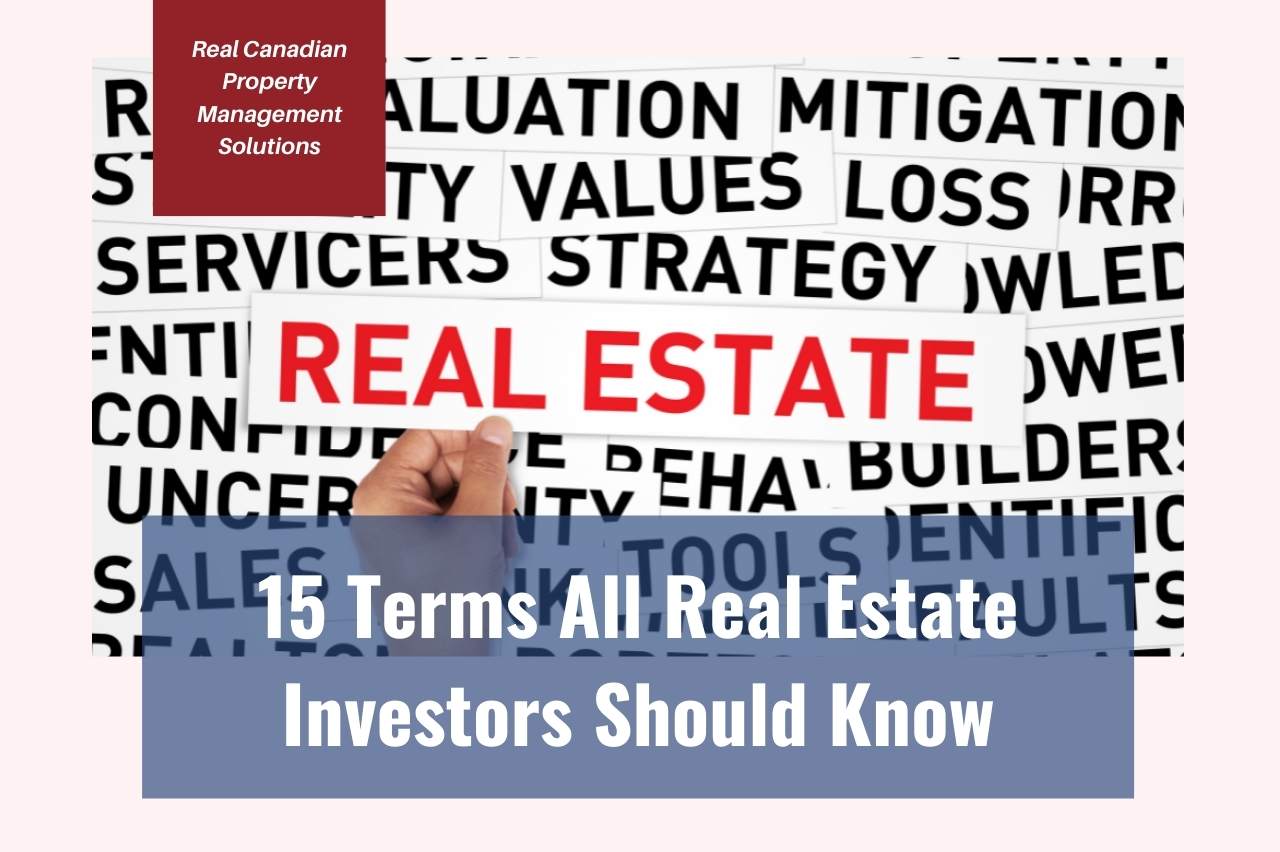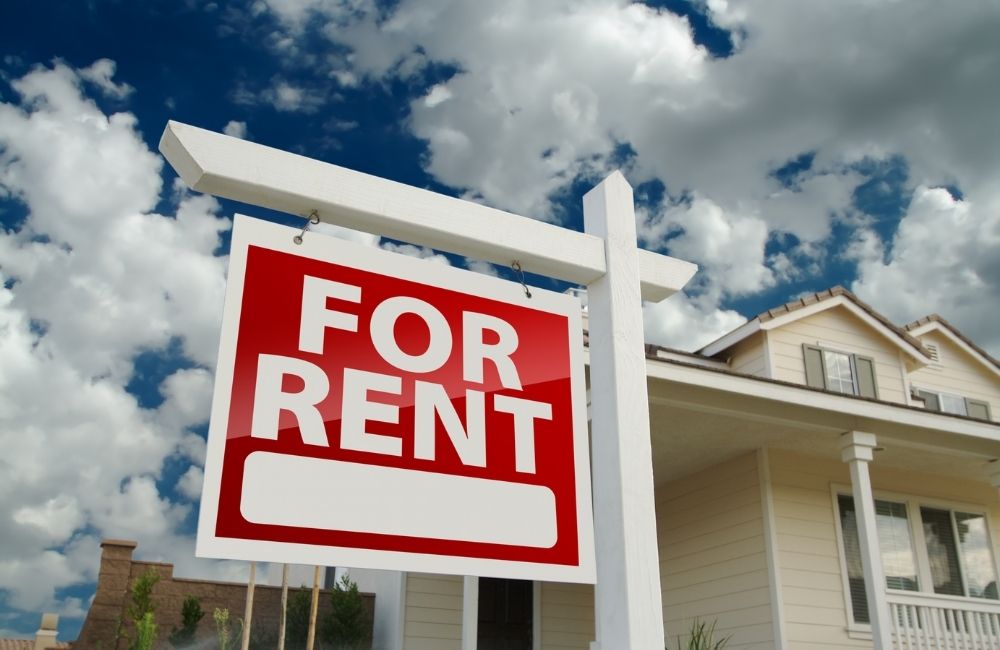
Of all the options for investments, real estate investment stands out among the best. For starters, it offers landlords a steady and reliable stream of income. Other benefits that make real estate a notable investment option include the tax benefits, its appreciation qualities, and that it’s a hedge against inflation.
However, property follows the same trends as other investments. The world of real estate investing has its own jargon when matters are being discussed or during transactions. As a result, some people new to investing in Grand Prairie real estate may feel out-of-the-loop.
In this blog by Real Canadian Property Management, the leading property management company in Grande Prairie, we’ll break down a few real estate terms that all investors should know!

1. Rental Property
Starting off easy, here – when speaking about properties as an investment, rental properties are usually the kind being referred to. A landlord receives periodic (usually monthly) payments for the occupation of their property. A rental property can either be residential or commercial.
2. Traditional Rental/Long-term Rental
This is where a tenant will occupy a space for a longer period of time. It’s the most common form of renting. This particular option has several benefits to you as the landlord, as it offers you a more consistent income, it’s easier to manage, and results in a lower turnover.
Long-term tenants usually sign leases that last a year.
3. Short-Term Rental/Vacation Rentals
This is a form of renting that’s become more popular in recent years thanks to the use of short-term vacation apps such as Airbnb, Booking.com, and Expedia. Renters occupy a furnished property for a short period of time, spanning between a few days to a week or two.
Depending on the particulars of the market, short-term rentals can offer landlords more money than long-term rentals. This is true in popular vacation spots, where owners are able to quickly adjust pricing during the popular season.
4. Cash Flow
This refers to the money you take home every month after deducting all operating expenses and costs. Cash flow at the end of every month can be positive or negative, depending on your rental property performance.
5. Pre-approval letter
This is a document you acquire from a lender or borrower, stating their willingness to lend you a certain amount of money. This document should not be mistaken for an assured loan offer.
Sellers often consider buyers who have a preapproval letter. In most cases, the document has an expiry date on it, from 30 to 60 days. Therefore, only get the letter once you’ve identified the investment property of your dreams.
6. Debt-to-Income Ratio
This financial metric is one of many used by lenders. It’s used to contrast the possible monthly debt repayments against gross income.
This metric is used to determine whether an individual is able to meet the demands of their monthly mortgage repayments.

7. Credit Score
Yet another financial measure that’s expressed as a numerical figure. An individual’s credit score shows their creditworthiness and will determine whether you qualify for a loan based on past credit files.
8. Off-Market Property
For a property to be sold, a seller or their agent will usually advertise the property on numerous listing platforms. An off-market property is one that’s for sale, but isn’t listed or advertised on listing sites.
9. Foreclosure
To acquire a property, a homeowner or rental property owner may consider taking a loan. If you do so, you’ll be required to pay monthly or quarterly repayments.
If you fail to make these repayments, the lender has the right to repossess the property. The property will be said to be in ‘foreclosure’.
A home can also be in foreclosure due to unpaid property taxes or other fees.
10. Homeowners Association Fees
While more common in the states, Homeowners Associations do exist in Canada. These are a body that govern the management of properties in a community, subdivision, or condominium.
HOA fees assist the association in meeting its obligations, such as maintaining amenities and repairs to common areas.
When evaluating a home or rental property, you should consider whether you’ll need to pay HOA fees.
11. Buyer’s Market
This term refers to a property market where the demand for property is lower than the supply of new housing. Due to this, sellers are bound to lower their prices. A buyer’s market is the perfect market for any investor to start buying properties.
12. Seller’s Market
In a seller’s market, the demand for property is significantly higher than the supply of new housing. The higher demand causes the prices to increase, making it an attractive market for sellers. A great example of this is what happened in 2020.

13. Appreciation
This is one of the big benefits of investing in real estate. Appreciation refers to the increase in the value of an asset.
Several factors can cause this increase in value: improvements in the local economic situation, renovations, infrastructure development, or local development in the neighborhood.
However, it should be noted that appreciation is not a given. House prices can depreciate. If there is a significant decline in demand or the property isn’t well-maintained, you can expect the value to drop.
14. Predictive Analysis
This is the collection and analysis of historical data to predict future trends in the market. Predictive analysis is important for real estate investing, as it offers investors reliable forecasts so they can use to make informed decisions.
15. Net Operating Income
Often abbreviated as NOI, this is the income that an investment property generates annually after the deduction of all property expenses. The expenses considered in this calculation include utilities, management fees, and property taxes.
Trusted Grande Prairie Property Management Company
Real estate is a specialized field that requires resources, expertise, and industry knowledge. Investing in a poorly performing market could lead to the loss of your hard-earned money and savings. Unburden yourself of this stress by contacting the experts at Real Canadian Property Management!
Our professional services are designed with the client in mind. We always seek to create solutions that will meet your individual needs as a property investor. Our reputable team is available, committed, and ready to offer you great services, as we’ve done for many investors before!